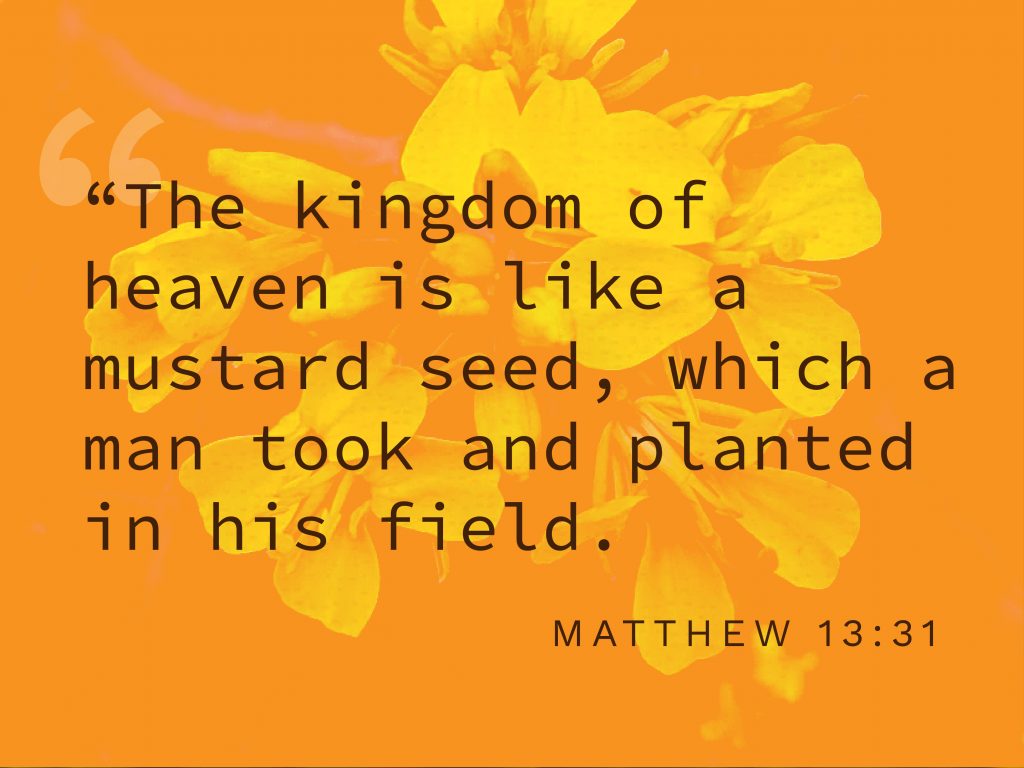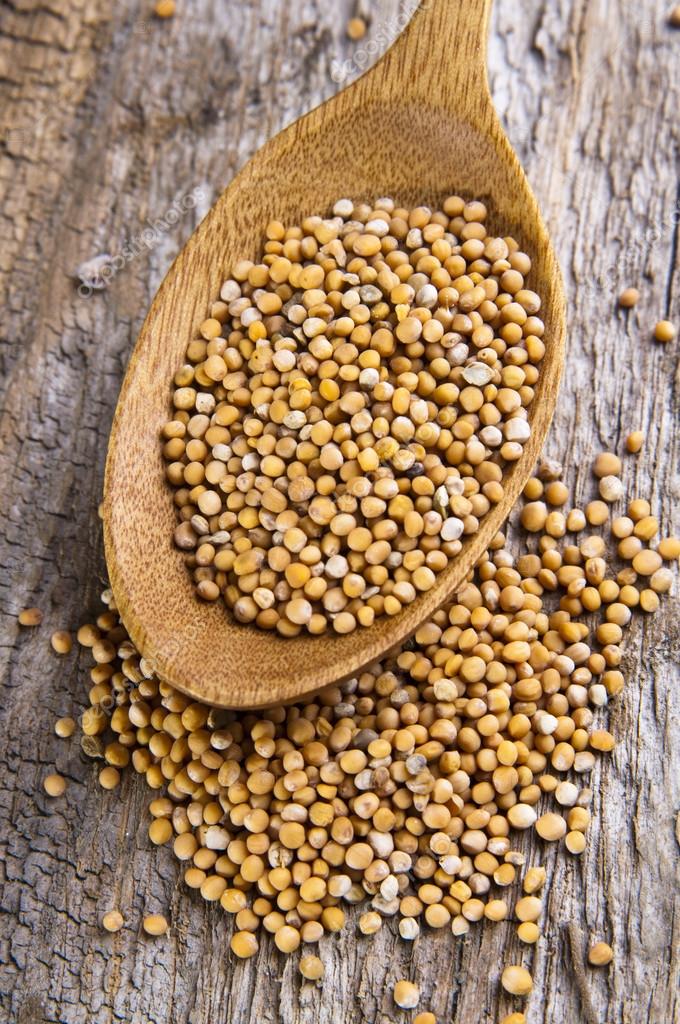Jesus told them another parable: “The kingdom of heaven is like a mustard seed, which a man took and planted in his field. Though it is the smallest of all seeds, yet when it grows, it is the largest of garden plants and becomes a tree, so that the birds come and perch in its branches”
Matthew 13:31-32, NIV
The ancient rabbis used to say that Scripture is like a gem with 70 faces – every time you turn it, the light refracts differently, and you see something you’d missed before. Jesus’ parable of the mustard seed has always been a personal favorite, a challenging and inspiring story about how we think about size and power in God’s Kingdom. Recently, however, God’s Light has revealed a new element to the story that I’d missed until now.

For years when I read this story, I always understood the last line about birds perching in the branches of the mustard tree to be another indication of size: a seed that started so small eventually grows to the point that even a bird can perch in its branches.
It turns out there’s something more going on here. At the time, there was a common saying among the Hebrew people: “When God rules the world, it will be like eagles perching in the branches of cedar trees.” That’s how people thought about the reign of God: the biggest, most powerful trees imaginable with the most powerful and majestic of all birds, eagles.
When Jesus talks about the Kingdom of God, though, he challenges that perception. He takes a well-known image and offers an alternative picture: the Kingdom of God isn’t like huge cedars with eagles; it’s like a mustard plant with birds.
And the word he uses for “birds” is a very specific word. It’s the Greek word peteinon, which doesn’t just mean “birds” – it means “wild birds.” These are not the mighty eagles that dwell in huge trees. There’s a different word for that. Instead, the word Jesus uses describes the wild, often dirty, detestable birds that people tried to get rid of. These are the kinds of birds that ate animal carcasses and that farmers erected scarecrows to keep away. They were unwanted, undesirable animals.
And yet when Jesus describes the Kingdom of God, he says that even the unwanted and undesirable will find a home …
… even those animals, and those people, who don’t feel worthy – they’ll have a place in the Kingdom of God.
… even those people who have been told all the many reasons why they don’t measure up – they’ll have a place in the Kingdom of God.
… even those people who have been through experiences that make them feel broken and beat up and like damaged goods – they’ll have a place in the Kingdom of God.
In other words, Jesus makes clear that God’s Kingdom, God’s mercy, God’s grace is for everyone, including and especially for those on the margins, those on the outside, those who wonder whether their lives really matter.
If you’re reading this post and find yourself wondering whether God could really love someone like you, forgive someone like you, and welcome someone like you – the answer is a resounding YES! The Kingdom of God is for everyone, no exceptions. No matter who you are, no matter what you’ve done, no matter what you’ve been through, the Good News at the heart of our faith is that God’s welcome is for all people.
May our churches be places where this Good News is both known and proclaimed.
The opinions expressed in articles posted on Mosaic’s website are those of the author and may not reflect the official policy of Mosaic Conference. Mosaic is a large conference, crossing ethnicities, geographies, generations, theologies, and politics. Each person can only speak for themselves; no one can represent “the conference.” May God give us the grace to hear what the Spirit is speaking to us through people with whom we disagree and the humility and courage to love one another even when those disagreements can’t be bridged.

